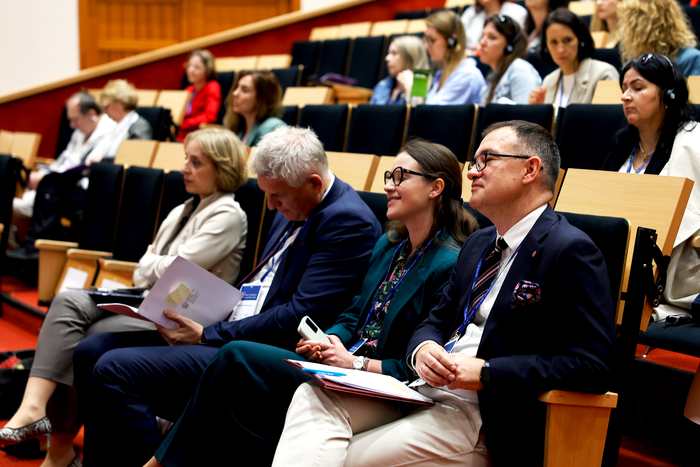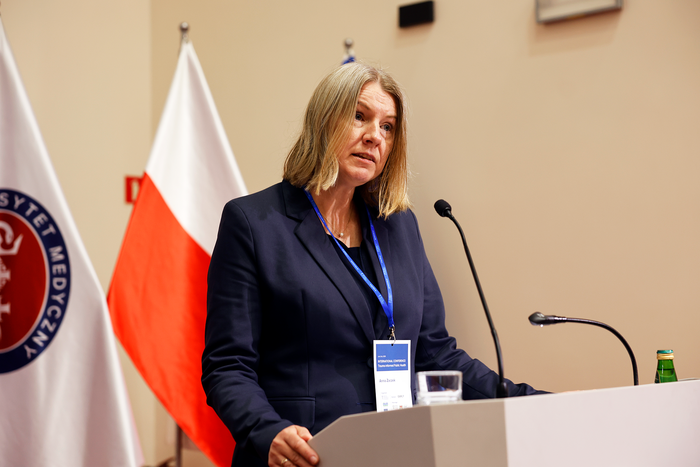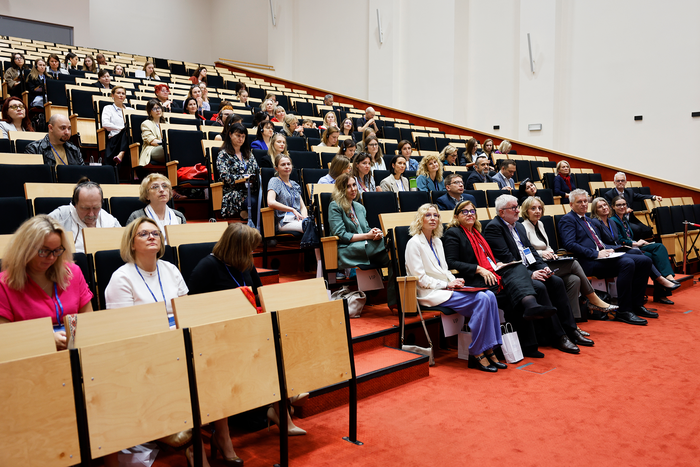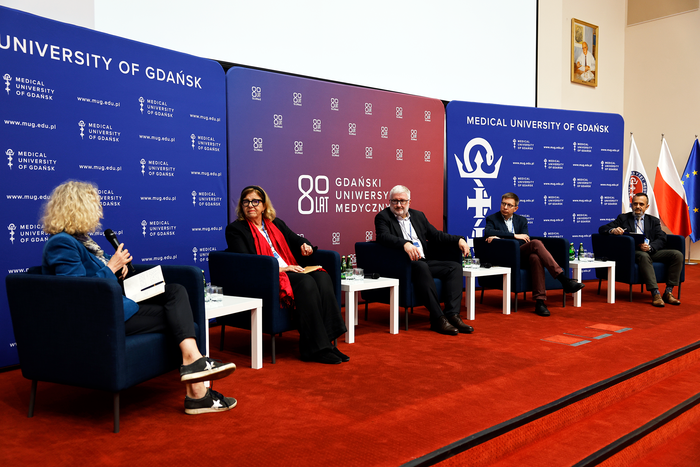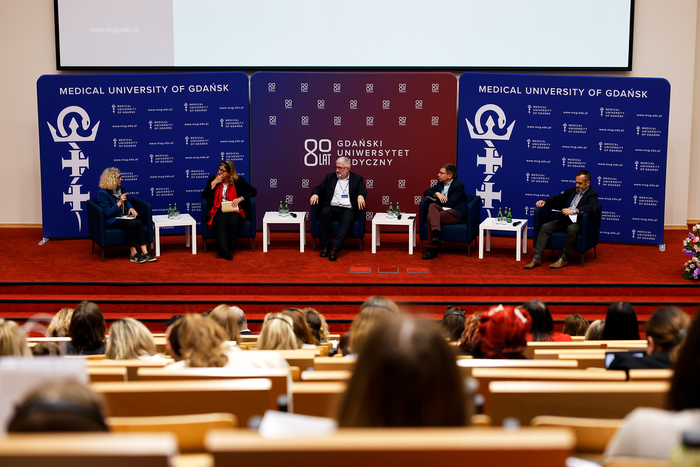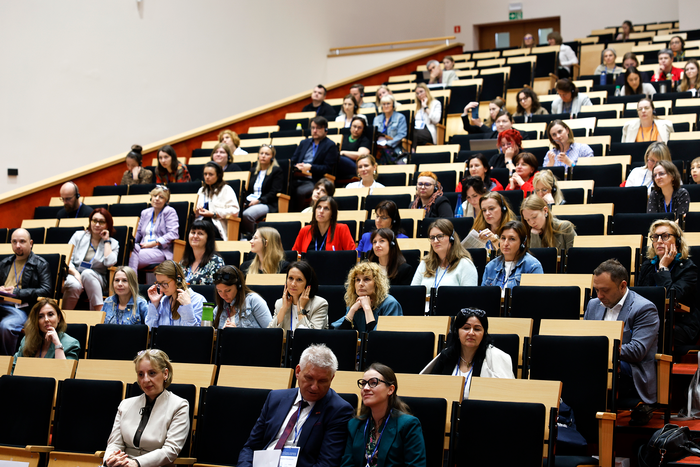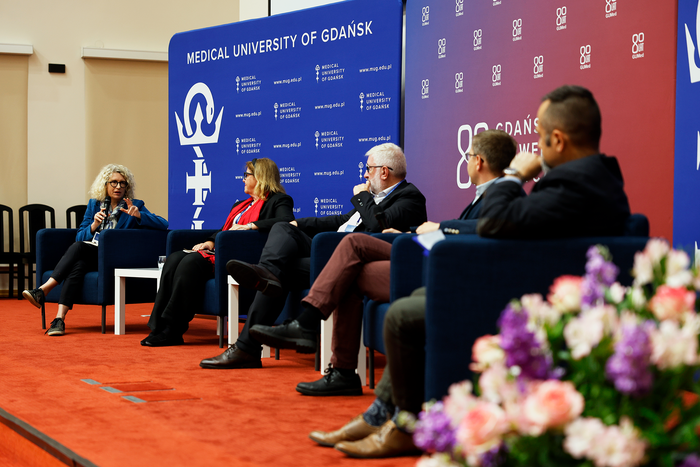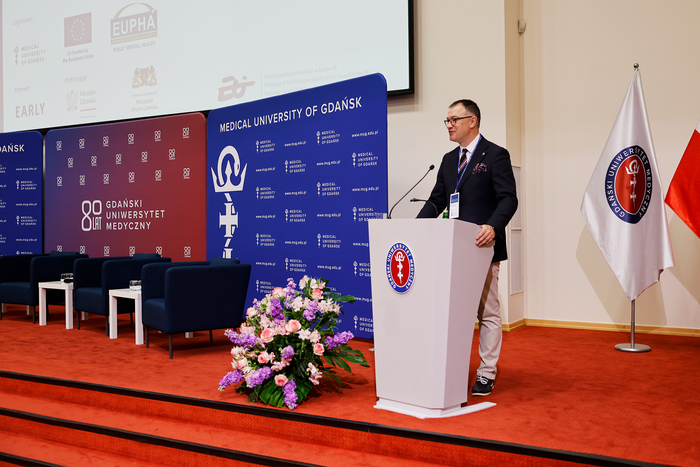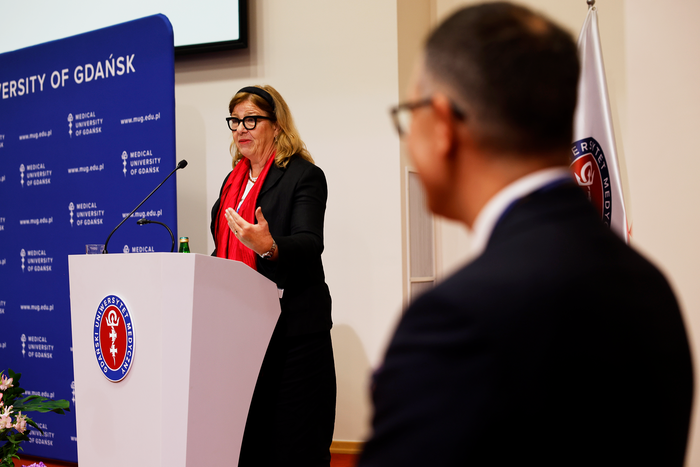International conference on trauma in public health
4.06.2025
Over 100 researchers, experts and practitioners from around the world gathered to share knowledge and experience, addressing trauma not only as a deeply personal experience but as a global public health challenge during the Trauma-Informed Public Health conference, held at the Medical University of Gdańsk (MUG). The event was organized by the Department of Public Health and Social Medicine at MUG in collaboration with the European Public Health Association (EUPHA). The conference was held under the honorary patronage of the Mayor of Gdańsk, the President of the Polish Presidency in the Council of the European Union, and the Rector of the Medical University of Gdańsk.
On behalf of the Rector, Prof. Anna Żaczek, Vice-Rector for Development and Cooperation, opened the conference by emphasising the University’s role in supporting education, research, and practical initiatives in the field of mental health.
– The challenges of the modern world demand a holistic and interdisciplinary approach to health. Trauma is not merely an individual experience – it is a social phenomenon that requires collaboration across disciplines, said Prof. Żaczek, highlighting MUG’s ongoing commitment to advancing knowledge and practice in this area.
Trauma has unfortunately become a widespread phenomenon. Its causes are diverse, but the long-term, devastating consequences often transcend geography, history, or language, noted Wioleta Tomczak, Vice-Chair of the Health Committee of the Polish Parliament and public health specialist at the MUG.
Dr Nino Berdzuli from WHO Poland reminded attendees that trauma is not only defined by what happened, but also by how it was experienced and interpreted by the individual. Globally, 70% of people experience trauma, with 4% developing PTSD. She drew particular attention to the situation in Ukraine, where in 2024 alone, over 50,000 children required psychological support. Berdzuli emphasised WHO’s response through the MHPSS strategy, which integrates psychological care within health systems and social policies to ensure support that is accessible, comprehensive, and stigma-free.
In his keynote, Prof. Michał Bilewicz from the University of Warsaw demonstrated that refugees’ psychological resilience is shaped not only by past trauma but also by their sense of belonging. Individuals who strongly identified with their country of origin but lacked connections in their host communities were more susceptible to PTSD symptoms. Integration and the ability to contribute to society were shown to have a protective effect. Prof. Jutta Lindert delved into the topic of intergenerational trauma, shedding light on its biological and epigenetic footprints. Stress, she explained, can be inherited, potentially leading to mental health issues in future generations.
Prof. Richard Mollica from Harvard Medical School spoke on how to address trauma in a healing rather than harmful way. – Instead of asking, ‘What’s wrong with you?’ we should be asking, ‘What happened to you?’ He stressed the importance of empathetic listening and presented practical techniques for supporting individuals who have experienced psychological trauma.
Among the featured speakers was Agata Gajos from the Polish Red Cross, who presented the organization’s initiatives supporting those affected by humanitarian crises.
Prof. Anna Shalimova from the MUG shared research findings on the impact of war-related stress on physical health, including the development of hypertension among Ukrainian refugee women. It is worth noting that Prof. Shalimova, together with Prof. Krzysztof Narkiewicz, coordinated the War-Scar project, which explored how trauma and stress affect blood pressure in women fleeing the war in Ukraine. You can learn more about the project one of the recent episodes of the MUG’s podcast Skalpel and on the University’s YouTube channel.
Lively discussions also took place during two expert panels featuring prominent specialists from across Europe, including Prof. Tit Albreht, Dr. Tomasz Bochenek, Dr. Jolanta Zboińska, and Karol Bączkowski – a paramedic widely recognized from social media as #KarolRatownik.
Prof. Anna Żaczek emphasised the significance of hosting the conference at a university that bridges science and therapy. She also pointed to the importance of interdisciplinary collaboration:
– We cannot prevent all sources of trauma, but through knowledge, research, and cooperation, we can better support those affected. And we can work to build resilience – especially among the most vulnerable.
Both the presentations and the discussions underscored the importance of a systemic approach to trauma and the urgent need to develop robust mechanisms for psychological support.
– Just like in other areas of medicine we talk about targeted therapy, in the field of post-trauma care we also need an individualized approach, supported by appropriate legislation from the state, added Wioleta Tomczak.
The shared message of the conference was clear: trauma-informed public health is no longer an option – it is a necessity. As a co-organiser, the Medical University of Gdańsk reaffirmed its role as a place of learning, dialogue, and action in the advancement of mental health care – in Poland and across Europe.
Archives
- Academic Year 2024/2025
- Academic Year 2023/2024
- Academic Year 2022/2023
- Academic Year 2021/2022
- Academic Year 2020/2021
- Academic Year 2019/2020
- Academic Year 2018/2019
- Academic Year 2017/2018
- Academic Year 2016/2017
- Academic Year 2015/2016
- Academic Year 2014/2015
- Academic Year 2013/2014
- Academic Year 2012/2013
